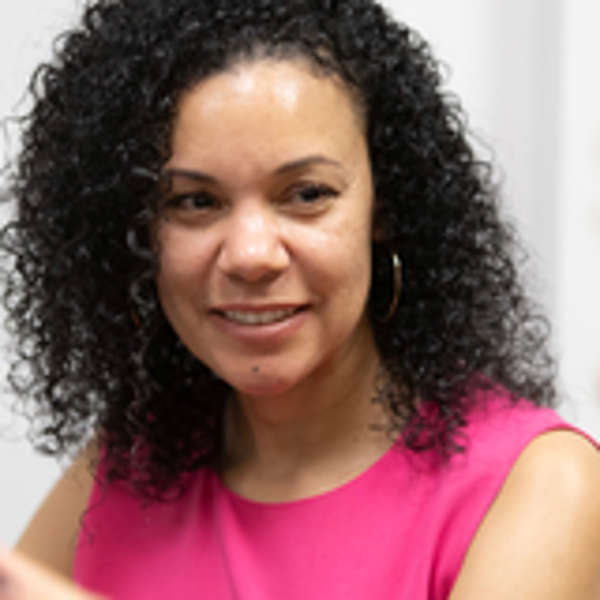7 ways to welcome refugees into your community
Following Jesus' call requires only a willingness to step up and serve.
Bethany Marketing Team

We’re living through the worst refugee crisis in modern history. Across the globe, one out of every 97 people is displaced from their homes due to violence, persecution, or poverty. This number includes a staggering 37 million children. At Bethany, we believe that every one of these families and children deserves a safe place to call home — whether in the U.S. or elsewhere. That’s why we’re committed to helping refugees find safe homes and become thriving members of their communities.
Welcoming refugees is not the job of the government or an organization like Bethany alone. All of us — especially those who follow Jesus — have a role to play to serve the overlooked and ignored. No matter where you live, your socioeconomic status, your age, or your skills, you can help make a refugee feel safe and welcomed.
Here are seven practical ways you can welcome refugees into your community:
1. Educate yourself and others about refugees and the refugee resettlement process
Unfortunately, the last few years have seen a dramatic increase in negative attitudes toward refugees. Politics and social media have become a geyser of misinformation about the refugee resettlement process. Inaccuracies and negative stereotypes have made it much harder for refugees to find shelter in the U.S. These have also made life harder for refugees already here and for organizations, like Bethany, committed to serving them.
All of us can play a part in countering misinformation about refugees. The first step is to learn the facts about refugees and the resettlement process. The United Nations Refugee Agency (abbreviated UNHCR) defines a refugee as someone who is escaping from, or has a well-founded fear of, persecution because of their race, religion, nationality, political opinion, or inclusion in a certain social group if they stay in their home country. The overwhelming majority of refugees are permanently displaced, meaning they will likely never be able to return to their original home. Their only option is to find a new home.
It’s also common to hear people confuse refugees with undocumented migrants or asylum seekers. A refugee can come to the U.S. only after being granted refugee status by the UNHCR and being referred to the United States Refugee Admissions Program. Refugees are here legally.
Another misconception about refugees is that they bring health or security risks to the country. In truth, refugees are not allowed into the country until they’ve undergone an incredibly thorough vetting process involving eight federal agencies. This includes an extensive background check and medical screening.
The bottom line is, refugees are here because they urgently need a safe new home. Our communities are enriched by their presence.
Read more myths and facts about refugees
Everyone has a voice in their families, churches, communities, or online social networks. Use your voice to stand up for refugees and counter untruths and misconceptions.
2. Advocate for refugees to be resettled into your community
A simple way you can advocate for refugees is to contact your congressional representatives and let them know you’re eager for refugees to be resettled into your community. It’s important for our elected officials to know their constituents are ready to welcome refugees. This can be done with a simple phone call, email, or letter. Use this site to find contact information for your representatives.
3. Co-sponsor a refugee
Bethany is one of many licensed refugee resettlement agencies in the U.S. We serve refugees in locations across the U.S. If you don’t live near one of our programs, there’s likely a resettlement agency serving your area. These agencies are contracted by the U.S. government to help refugees integrate and thrive in their new communities, particularly by helping them find housing and employment.
What these resettlement agencies have in common is the need for community partners to accomplish their mission. There are different names for this partnership, including co-sponsorship, but the purpose is the same: to walk alongside refugees as they adjust to a new life. The Bethany refugee offices in West Michigan call this the New Neighbor program. Individuals and churches volunteer to welcome and care for a newly arrived individual or family. This often includes being a tour guide to the local area, helping with transportation, providing childcare when needed, helping them practice English, and just being a good friend and neighbor in any way they need.
Co-sponsorship is an opportunity to help someone who needs a good neighbor and be encouraged in return. As more refugees are resettled across the country, the need for co-sponsors will dramatically increase. Individuals, families, church small groups, or entire church families can be co-sponsors. If you or your church are interested in helping refugees this way, contact a resettlement agency near you.
4. Donate money or basic household goods to resettlement agencies
Even if you can’t co-sponsor a refugee, there are plenty of ways to help them feel welcome. Bethany’s refugee resettlement program in Lancaster, Pennsylvania, collects welcome boxes for newly arrived refugees. These are filled with basic household supplies, including kitchen supplies, bedding, and basic hygiene items. According to Megan Brown, Bethany’s refugee resettlement site director in Lancaster, the financial stipend provided by the U.S. government doesn’t begin to cover the material needs of newly arrived refugees, and at times can be insufficient to pay for an apartment’s security deposit. The welcome boxes ensure that refugees can focus on settling into their new life without having to wait for a paycheck to pay for basic household supplies.
Beyond donations of physical goods, resettlement agencies rely on the generosity of financial donors to sustain their programs and provide refugees with services needed to integrate and thrive in their new communities. By giving to resettlement programs, you’re helping to embrace refugees and letting them know they’re welcome. Your gift also helps Bethany serve refugees and displaced persons all over the world, right where they are.
5. Help provide housing for refugees
One of the biggest responsibilities of resettlement agencies like Bethany is to ensure that refugees are provided housing as soon as they arrive. This goal is accomplished in different ways by each of our branches, depending on their resources. Our Lancaster and Philadelphia branches rely on connections with local landlords to find stable, affordable housing for refugees. Megan Brown admits that this is the toughest part of her job. Landlords in her area are sometimes suspicious of refugees and are often reticent to rent to them, partly due to negative stereotypes about refugees.
If you own rental properties or can refer us to someone who does, please consider helping resettlement agencies provide housing for refugees. It’s worth repeating: Accessible, affordable housing is a vital part of the refugee resettlement process.
6. Help provide employment for refugees
Another essential part of the resettlement process is finding employment for refugees who can work. Bethany has built connections with numerous employers located near branches with refugee programs. According to Kristine Van Noord, program director for refugee adult and family programs in West Michigan, local employers love hiring refugees because they are dependable and hard-working. Employers often call her asking when more refugees will be arriving! Van Noord says that refugees enrich the workplace by bringing diverse life experiences and perspectives that are far outside the American norm.
Are you a business owner or hiring manager? Do you have connections with someone who is? Get in touch with your local resettlement agency to learn more about hiring refugees in your workplace.
7. Provide a foster home for an unaccompanied refugee minor
Most refugees resettling in the U.S. are coming as family units — or joining family members already here. But many refugees have lost contact with their families in other countries, and tragically, many are minors. These children often live by themselves in refugee camps or urban areas and are highly vulnerable to sex trafficking or forced labor. The official term for these children is unaccompanied refugee minors.
Unaccompanied refugee minors (URMs) are often confused with unaccompanied children who are seeking asylum at the U.S.-Mexico border. Unaccompanied children are, in most cases, reunited with family after a short stay in a transitional foster home. But for URMs, reunification with family is usually impossible. (A small percentage of unaccompanied children eventually become URMs, if the government cannot reunite them with family.) After being resettled in the U.S., URMs receive a range of special services from the government to help them prepare for adulthood, but the most important thing they need is a home and family. That’s why Bethany serves URMs through our long-term refugee foster care program, which provides safe and loving homes for refugee minors who cannot be reunified with family.
URMs have often experienced more trauma and loss than many people experience in their entire lives. Your care for a URM, by providing a foster home, might help them to feel safe and loved for the first time they can remember. You will help them transition to a new life, heal from trauma, and grow into adulthood. It’s a challenging task, but one that is incredibly rewarding. Learn more about being a foster parent for refugee children.
Called to be a neighbor
In college, inspired by the biblical call to serve the vulnerable and oppressed, Laura McCarter dedicated herself to learning about the plight of refugees in Syria. But it wasn’t until she had the opportunity to serve a family of Syrian refugees that she truly began to understand what life is like for someone who is forced to flee their homes and resettle in an unfamiliar place.
The experience transformed her.
Now, Laura is Bethany’s refugee and immigration policy advisor. Her advice for people who want to serve refugees? Step up and use the gifts you already have.
Do you have a social media platform? You can advocate for refugees to be treated humanely and fairly.
Do you speak English? You can help tutor a refugee.
Can you cook food? You can bring a newly arrived family a meal.
Can you care for a child? You can provide childcare while a refugee family is at a medical appointment or job interview.
Can you buy extra rolls of toilet paper and some cleaning supplies the next time you’re at the store? You can help refugees settle into their new home.
Following the call of Jesus to serve our neighbors — wherever they’re from — does not require a special sort of person with special sorts of gifts. It requires only a willingness to step up and serve.
Are you ready?



